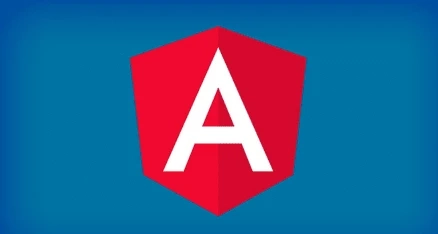Angular is an open-source web application framework developed by Google and community members, giving you the ability to build applications in HTML, CSS, and TypeScript.
It’s used to build single-page applications that make use of both HTML and JavaScript code to create rich and powerful user interfaces with minimal code and effort required from you, the developer.
Since its release in 2009, Angular has quickly grown to become one of the most popular frameworks out there due to its flexibility, extensibility, and strong support within the development community.
If you’re looking to hire Angular developer, there are some best practices you can use to find the right people for your project and ensure that the results you receive are exactly what you wanted.
Just follow these 10 steps and you’ll be well on your way to hiring the best developers in the industry.
10 steps to hire the Angular developers for your project
Step 1: Know what you want
Before you even begin recruiting, you need to know what you’re looking for in an Angular developer. What kind of experience do they need? What languages do they need to know? Are there any specific personality traits that would make them a great fit for your team? Write down these requirements and make sure everyone on your team knows about them so there’s no room for confusion later.
Step 2: Get real qualified candidates
It’s no secret, that finding good talent is hard. For one thing, you need a candidate that matches both your requirements and vision. And to top it off, you also want someone who’s qualified.
To get a pool of qualified candidates with awesome resumes, post job ads in all relevant places: local community news channels, classifieds (Craigslist), job boards like Indeed and Monster, etc. Also, be sure to include a complete description of what you’re looking for.
Step 3: Learn about their skills
It’s important to work with a team that has experience in what you need, and one that can meet your goals. Ask each candidate you interview about their skills and look at their portfolio, LinkedIn profile, and Github projects. Knowing how long they’ve been working with Angular is also key – experience is everything when it comes to emerging technology like Angular.
Step 4: Test them on their code
Hiring a programmer means that he/she will be tasked with writing code as part of his/her role at your company. Obviously, it is necessary that they are competent enough in their craft to deliver on time and produce code that meets both business and technical requirements.
 Before you even think about hiring them, you should ask them questions about their coding skills. Don’t rely on resumes, see what they have done themselves or test their knowledge by asking questions related to their skillset.
Step 5: Check their interest in your business
When you reach out, don’t just introduce yourself and ask if they want to work with you. Instead, talk about how their work has helped others and inquire how it might be relevant in your own business. Asking them a question shows them that you’ve put thought into why you reached out and affirms that you understand what they do, which makes them more likely to give you a shot.
Step 6: Test their communication skills
Make sure they aren’t just good coders, but also able to communicate with other team members. If a developer can’t clearly explain his or her code, then they won’t be able to receive feedback and work effectively with others. To test how well a candidate communicates, provide them with an open-ended question about a common problem you know your team has faced in developing their app.
Step 7: See what other clients say about them
Get referrals and do reference checks. If their past clients are happy with their work, then you should get in touch with them. Ask if they’d be willing to give a short testimonial on their work so you can use it in marketing materials.
Remember that they’re going to say positive things, but if it feels over-the-top positive or too good to be true then that might be a sign there’s something shady about them.
Step 8. See if they fit your project requirements
The key question you need to ask yourself is whether your candidate would be a good fit for your team. If you’re asking for candidates with certain skills and experience, make sure you determine if they’ve got it.
You can look at a CV, see what technologies they used, or just have a quick chat with them about projects they’ve worked on. No matter how you do it, make sure that their answers and experiences match up with what you need.
Step 9) See if you can work with their personality and attitude
Before you dive into these technical details, it’s important to know if you can work with an individual’s personality and attitude. A person who doesn’t get along with others is not someone who will add value or happiness to your team. What matters here is whether a candidate will be a good fit for your company culture—if they pass that test, then you can spend more time evaluating their skills.
Step 10) Fix the deal with the contract
Have a lawyer or someone in business affairs review any contracts. The more details you cover in a contract, the less room there is for dispute, and a lawyer’s advice can be invaluable. Signing on without professional advice may end up costing you more than it’s worth. If a deal is too good to be true, it probably is—especially if there aren’t many details specified in writing.
Conclusion
Angular is a relatively new framework that can help you develop powerful, interactive applications. But like all programming technologies, it requires careful attention and expert implementation. We’ve put together a list of 10 tips to ensure you find just what you need in an Angular developer.
These pointers will help you better understand how hiring works, how much you should expect to pay, and what other aspects are important when choosing a development firm or freelancer.
0



